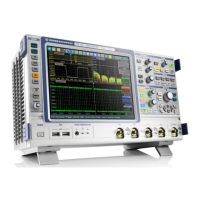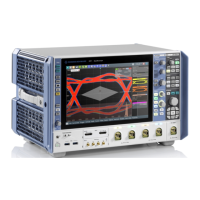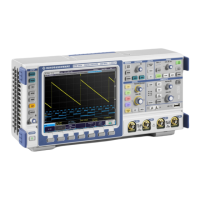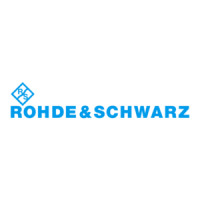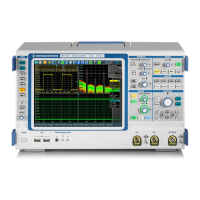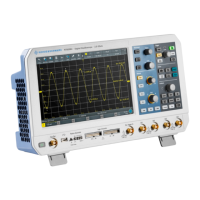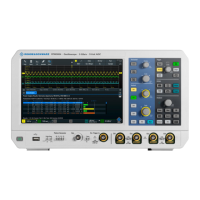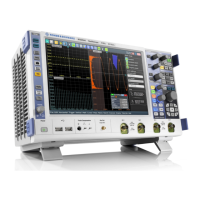Acquisition and waveform setup
R&S
®
RTP
207User Manual 1337.9952.02 ─ 12
●
Automatic measurements
●
Histogram
●
Mathematics. In formulas, use DIFF1, DIFF2, COMMON1, COMMON2.
●
FFT, spectrogram
●
Mask test
●
Export of waveform data. You can export the differential and common waveforms if
they are selected as output and displayed. Raw data is not available.
Without deembedding, P and N waveforms can be exported if they are selected as
output and displayed (source = input channel). With software deembedding, only
differential and common waveforms are available for export.
5.9 Setting up the waveform
This chapter contains the fundamental procedures for setting up the acquisition and
adjusting the channel waveforms.
5.9.1 Adjusting passive probes
When using a passive probe, you have to compensate it when you connect it to the
instrument the first time. Compensation matches the probe cable capacitance to the
oscilloscope input capacitance to assure good amplitude accuracy from DC to upper
bandwidth limit frequencies. A poorly compensated probe reduces the performance of
the probe-oscilloscope system and introduces measurement errors resulting in distor-
ted waveforms and inaccurate results.
Two connector pins are located on the front panel. The right pin is on ground level. The
left pin supplies a square wave signal with 1 kHz for low frequency probe compensa-
tion.
1. Connect the BNC connector of the probe to input [C1].
2. Connect the probe's ground connector to the right compensation pin, and the tip
with the left pin.
3. Press [Autoset].
A square wave appears on the display.
4. Adjust the compensation trimmer of the probe to optimum square wave response.
For details, refer to the documentation of your probe.
Setting up the waveform
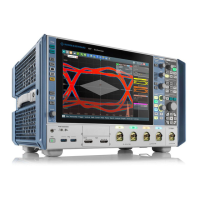
